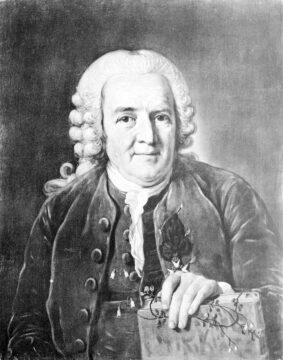Hunter Dukes at Cabinet Magazine:

By the 1758 edition of Systema naturae, when Linnaeus first endowed humans with the specific epithet sapiens, the maxim “know thyself” had blossomed into a creed that wed introspection with observation. “The first step of wisdom,” he wrote, is to observe “those marks imprinted on [natural bodies] by nature, to distinguish them from each other, and to affix to every object its proper name.” Far from the oblivion of childhood innocence, and decades away from the cognitive decay that would return the natural world to indistinction before his eyes, Linnaeus once more worries about the cost of forgetting. “If the name be lost, the knowledge of the object is lost also; and without these, the student will seek in vain for the means to investigate the hidden treasures of nature.”
It was perhaps this capacity for linguistic stewardship, and the threat posed to knowledge by cultural aphasia, that led Linnaeus to classify his species as sapient. After all, he thought, there are hardly any meaningful physical qualities that separate us from other primates.
more here.
